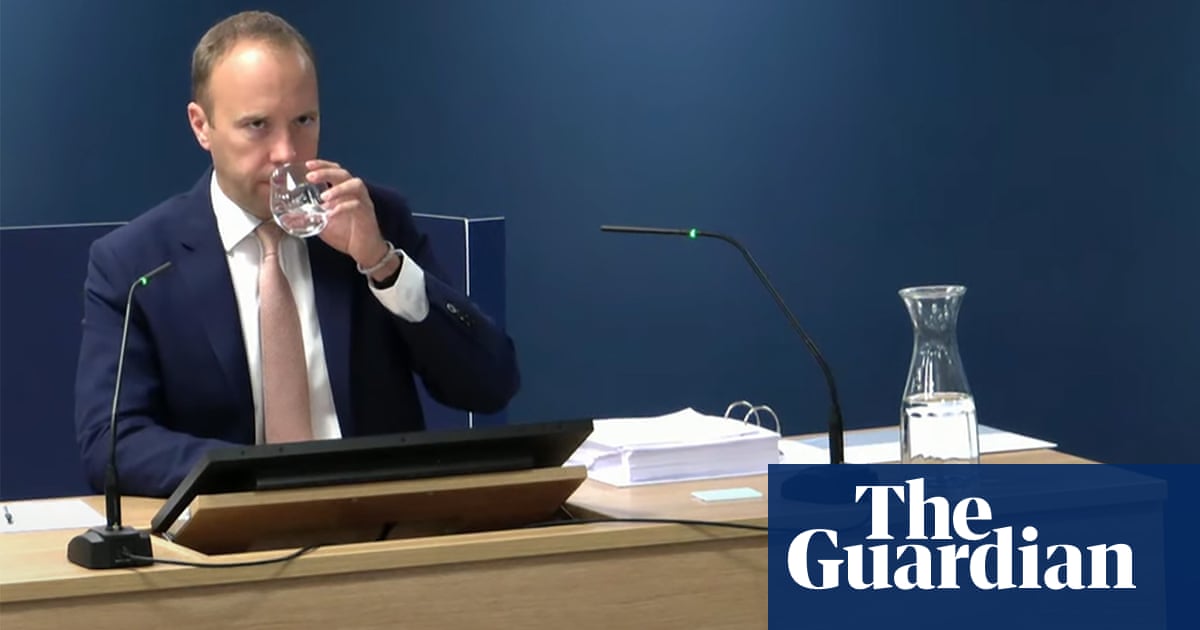
Matt Hancock has said there will be a significant dip in vaccine supply in April, confirming supplies have been hit by a need to retest 1.7m doses and a delay in arrival of imports from India.
Speaking in the House of Commons, Hancock stressed the overall target timetable for vaccinations would not change but said he wanted to give more information, following the “speculation we’ve seen overnight”, after he was criticised for a press conference on Wednesday where the drop in supply went unexplained.
“In the last week, we’ve had a batch of 1.7m doses delayed because of the need to retest its stability,” he said. “Events like this are to be expected in a manufacturing endeavour of this complexity and this shows the rigour of our safety checks. And we have a delay in the scheduled arrival from the Serum Institute of India.”
However, speaking to the Guardian earlier, a source authorised to speak for the institute denied there was any delay in delivering vaccines, claiming there had been no agreed timeframe to deliver a second tranche of 5m doses.
The source said there had not been a hold-up from the Indian government, and that it had given approval for exports, though permission depended on the situation in India, which has significantly changed in the past fortnight.
Government sources also declined to clarify which vaccine batch had been affected by the need to retest supplies for stability.
The health secretary said that there would inevitably be some uncertainty in the manufacturing process. “The pace of rollout has always been determined by the availability of supply. The process of manufacturing vaccines is complicated, and subject to unpredictability,” he said.
“We make public commitments to the goals we can reach, according to our best estimates of future supply. That supply goes up and down.”
Hancock said the UK was currently experiencing “some bumper weeks of supply” but that would fall. The slowing of first doses would also come from the need to use the supply to administer second doses to meet the 12-week deadline, Hancock said.
“We have a huge number of second doses to deliver during April. Around 12 million people, including many colleagues in this house, will receive their second dose. These second doses cannot be delayed, as they have to be delivered within 12 weeks of the first dose.”
Hancock was at pains to praise the Serum Institute of India, as well as vaccine producers Pfizer and AstraZeneca, saying the institute was doing “incredible work” producing vaccines for the whole world.
“Their technology, and their capability, which has been approved by the MHRA, is remarkable. It truly is a partnership that we can be proud of,” he told MPs.
He said no appointments would be cancelled and that the targets were still on track to be met. “There will be no weeks in April with no first doses, there will be no cancelled appointments as a result of supply issues. Second doses will go ahead as planned.”
Hancock also announced that Gibraltar had become “the first nation in the world to complete its entire adult vaccination programme”, calling it a “success thanks to a team spirit across the British family of nations”.
After a slow start, India’s vaccination programme has more than doubled the number of doses it is administering each day compared with last week, which in turn is likely to have increased its demands on the institute’s supply.
India has sold or gifted about 59m vaccine doses abroad, compared with the 37m it has administered at home, with another 38m distributed to state governments and awaiting use. Indians have largely backed their government’s programme of “vaccine maitri” (vaccine friendship), but the country’sforeign minister, S Jaishankar, told parliament on Wednesday that exports and donations were “based on the assessment of adequate availability at home”.
AstraZeneca has partnered with the institute, which is the world’s largest vaccine manufacturer, to supply the Indian government and other countries, including low- and middle-income ones.
A member of the UK government’s joint committee on vaccination and immunisation conceded on Thursday morning that Covid infections could rise as a result of the delay in people in their 40s and younger getting their vaccinations.
Adam Finn, who advises UK health departments on immunisation and is a professor of paediatrics at the University of Bristol, told BBC Radio 4’s Today programme that vaccination of those aged under 50 “may kick off slightly later than we’d optimistically hoped”.
Finn said the decline in hospital admissions should continue as long as all those over-50s and vulnerable people were vaccinated on time. He said the 12 weeks between first and second doses must “not be allowed to slip significantly”.












